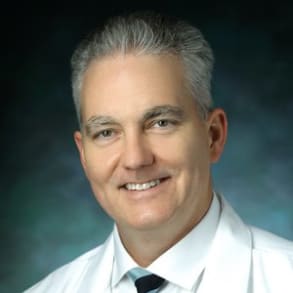Otolaryngology–Head and Neck Surgery resident Deborah Xie and otolaryngologist Matthew Stewart recap their presentation given at the AAOHNS 2021 meeting. They studied how patients are using social media to find medical information. By understanding what kinds of questions patients have when they turn to social media, health professionals can provide more effective counseling when they meet with them in person.
mm hmm. Yeah. Yeah. My name is Debbie Shia and I'm 1/4 year otolaryngology resident at johns Hopkins Hospital. My name is dr math Stewart. I'm one of the otolaryngology faculty here at johns Hopkins University. I'm excited to share some of the research that we've been doing. Um This project was presented at the American Academy of Otolaryngology annual meeting this past fall. Um, we were interested in understanding how patients are using social media for medical information as a big picture question to answer. Um, we know that people often use social media to share updates about their personal lives and keep up with friends and family, but it also really serves as actual mode of communication between healthcare providers and our patients. Um, if we can understand what kinds of questions they have when they turn to social media, it can hopefully help us provide the most effective and efficient counseling with them when we meet with them in the office. Um, we had run a survey based study to better answer some of these questions and collected 765 responses um, consistent with prior reports that almost everyone is using social media and 96% of people report using social media on at least a daily basis. Um, Of all the people who had seen a doctor in over the past year, 95% of people had reported looking up something about their visit on the internet before seeing their physician and this included symptoms diagnoses, possible treatment options and even trying to look for the health care providers themselves. Um, we saw that search engines like google or yahoo were the most common ways that people were searching for information. But over 75% of people are also conducting these searches on social media. So that could be in search of support groups, seeing if any of their friends have similar um symptoms or conditions and even trying to find their doctors. Social media profiles. About 48% of the people that responded to our survey had posted something to their own personal social media account about their health. In the last year, we had asked them what motivated them to create these posts and people most frequently described wanting to connect with patients that are facing similar issues or symptoms. Um Other reasons include wanting to search for information about treatment options and just seeking advice. Another notable finding from our study was that almost 90% of respondents were interested in connecting with healthcare workers on social media and that includes physicians, nurses, nurse practitioners and physical or occupational therapists. People were most interested in getting more information about the diagnoses and treatment options that the providers can see. Um And interestingly over a third of participants were hoping to see what these healthcare providers do outside of the hospital. Um, I think this research really confirms what we suspected is that people when they have questions about their health. They're looking to online resources and looking to social media to answer these questions. People are most often looking for information about the symptoms, diagnoses and treatments and are searching for other people to connect with. Um I think it's really important as physicians that we ensure that there is accurate and reputable sources that we can guide our patients to. And there is really a space for us to be able to create a presence and connect with our patients in this manner. Thank you. Yes, we're very, very grateful for the opportunity to present this research at the American Academy of Otolaryngology. Head and neck Surgery Fall meeting. It's really part of a the body of our work is to try to understand the who, the what the where the why and the how of the usage of social media, particularly as it relates to otolaryngology programs. We try to understand the the role and the perspective of the patient and their family as they try to gather more information about their, about their particular health as they try to connect with others with similar healthcare questions and concerns. We try to understand how peers communicate with one another and the techniques and methods and information that they provide both to their peers and their patients. We're very lucky to have this work led by dr XIA. She was recruited from Vanderbilt University and she's become one of the national leaders and understanding the implications of social media as it relates to otolaryngology and head neck surgery. And so we look forward to studying similar questions in a variety of platforms, including instagram, twitter, reddit and other works. Um um thank you very much, mm hmm. Mhm.



